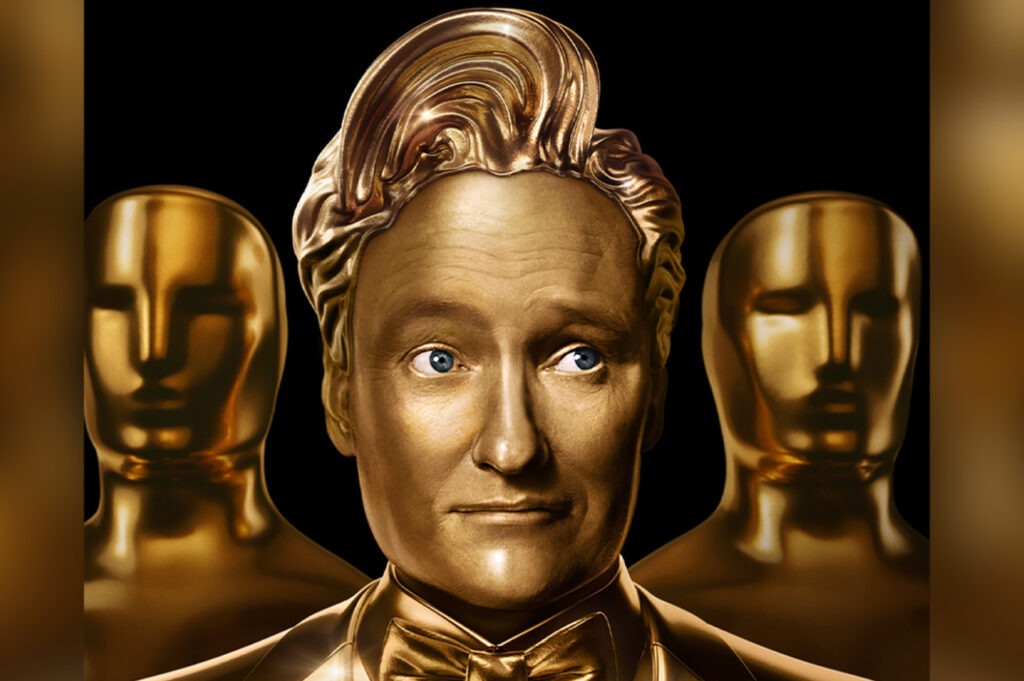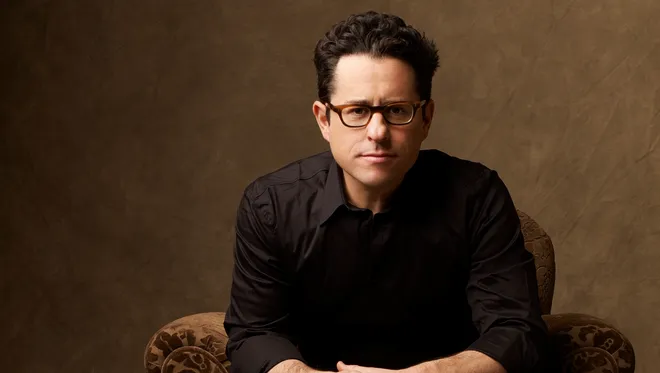The timing of Conan O’Brien’s return to the Oscars isn’t coincidence. It’s something closer to destiny — or perhaps fate’s ongoing practical joke.
As America teeters between inflation, political disillusionment, AI panic, and a cultural exhaustion so deep it borders on permanent exile, Conan steps forward once more.
Not as a savior. Not even as a provocateur.
He returns as something rarer and perhaps more necessary: a willing target.
“They need someone to blame,” Conan says with his trademark dry fatalism during a Zoom call, his ginger hair forming a kind of spectral halo in his dim garage-studio. “I’m volunteering.”
In a world angry at itself, at its leaders, at its own failures, O’Brien’s reemergence is both a strategic retreat and a heroic charge. He understands what too few public figures seem willing to acknowledge: that sometimes, survival means offering yourself up — smiling, limping, and aware — for the inevitable blows.
Why Now?
Conan O’Brien hasn’t hosted the Oscars since the early 2010s, back when late-night still ruled the kingdom and awards shows mattered to someone outside of Hollywood’s own ZIP codes.
In 2025, the terrain is very different.
TikTok outpaces television. Twitter (or X, depending on what day it is) devours narratives faster than they can be crafted. Younger audiences see awards shows as relics. Older audiences are too exhausted to care.
So why step into this cultural vacuum?
“Because,” O’Brien says, grinning like a man who knows he’s lost the bet and is still happy to pay up, “if the world’s mad, better they throw tomatoes at me than burn down the theater.”
The Oscars themselves are no longer simply ceremonies of cinematic excellence.
They have become weather vanes for American discontent:
- Arguments over diversity, representation, elitism.
- Ratings freefalling into the basement.
- Acceptance speeches dissected like political campaigns.
In this climate, Conan’s decision makes a kind of desperate sense.
He is not trying to save the Oscars.
He’s trying to absorb them.
Embracing the Human Piñata Role
Hosting the Oscars has long been a poisoned chalice, even for the most polished performers. Billy Crystal made it look easy. Chris Rock made it look cool.
But today, ease and coolness feel almost irrelevant.
Conan’s strategy for survival is simple: lean into the chaos.
“I plan to trip over things. I plan to mess up names. If a speech runs 11 minutes, I’m lying down center stage. I want to be the first Oscars host you actively worry about.”
He isn’t kidding.
In his view, embracing fallibility — performing not above the fray but fully within it — is the only viable path.
“If you go out there trying to look dignified in 2025, you’re roadkill,” he shrugs. “You need to be the guy who loses his shoe walking up the stairs.”
In other words, Conan understands: the audience doesn’t want to be reassured.
They want to see someone survive as they are — battered, imperfect, laughing at the absurdity of it all.
The Long Arc of Conan’s Resilience
To fully appreciate the significance of Conan’s return, you have to understand the tectonic arcs of his career.
- From SNL and The Simpsons head writer to surprise late-night host in 1993, inheriting David Letterman’s impossible shoes.
- From scrappy outsider to midnight institution.
- From public heartbreak during the 2010 Tonight Show debacle, ousted by Jay Leno’s shadow games, into an era of podcasting, streaming, and self-reinvention.
Few public figures have endured more public failure — and transmuted it into art — than Conan O’Brien.
Where others calcified into bitterness, Conan metabolized humiliation into something productive. His comedy evolved from scripted absurdity to existential charm. His persona shifted from wise-cracking smart-aleck to a kind of jester-philosopher, using humor as a way of acknowledging how little control any of us actually have.
Today, he stands not just as a late-night legend, but as a kind of avatar for the American psyche: scarred, hilarious, resilient beyond reason.
Leaving America (Kind Of)
Parallel to his Oscar hosting duties, O’Brien’s newest project — Conan O’Brien Must Go — takes him overseas to locations like Norway, Thailand, and Argentina.
On the surface, the show is simple: Conan surprising fans in their hometowns, documenting the resulting chaos.
But underneath, it reads almost like a form of soft self-exile.
“I’m fleeing the anger,” he jokes, half-seriously.
“In America, I’m just another burned-out court jester. In Argentina, I’m an exotic dancing giraffe.”
There’s a brilliance to the strategy.
By moving his show abroad, O’Brien taps into the same energy that revitalized his late-night specials filmed in Cuba and Haiti. He uses cultural dislocation — his awkwardness, his linguistic incompetence, his sheer physical absurdity — to remind viewers what it feels like to be both lost and joyful.
He is once again the eternal outsider — only this time, on a planetary scale.
What Conan Brings to the 2025 Oscars
The real question is not what Conan O’Brien gets out of hosting the Oscars.
It’s what the Oscars get out of Conan O’Brien.
The Academy needs credibility, yes.
It needs relevance, absolutely.
But above all, it needs someone who understands that failure can be funny.
Conan is uniquely suited to this moment because he doesn’t promise success.
He promises survival.
He offers the Oscars an antidote to their existential anxiety — not by ignoring the decay, but by dancing on its remains.
His playbook is clear:
- Self-deprecation over sanctimony.
- Chaos over control.
- Acknowledgment over pretense.
In short, he will do what he has always done best:
Turn public collapse into private communion.
Turn anger into laughter.
Turn a losing hand into a show worth watching.
A Final Thought: Why Conan Still Matters
In the end, Conan O’Brien’s return to the Oscars and his global adventures are not simply professional maneuvers.
They are acts of creative defiance.
He refuses to vanish.
He refuses to grow bitter.
He refuses to pretend the world is better — or worse — than it is.
Instead, he offers something braver:
A comedy built on the ruins, but facing the sunrise.
In an age obsessed with winning, Conan reminds us that the real triumph is endurance — the stubborn, hilarious insistence on showing up, messing up, and laughing anyway.
If America is crumbling, Conan O’Brien is happy to be its fool king — dancing, falling, roaring with laughter — carrying us one joke closer to something like hope.
And if he gets pelted with tomatoes along the way?
He’ll catch them, juggle them, and make it the best bit of the night.
No comments yet.








